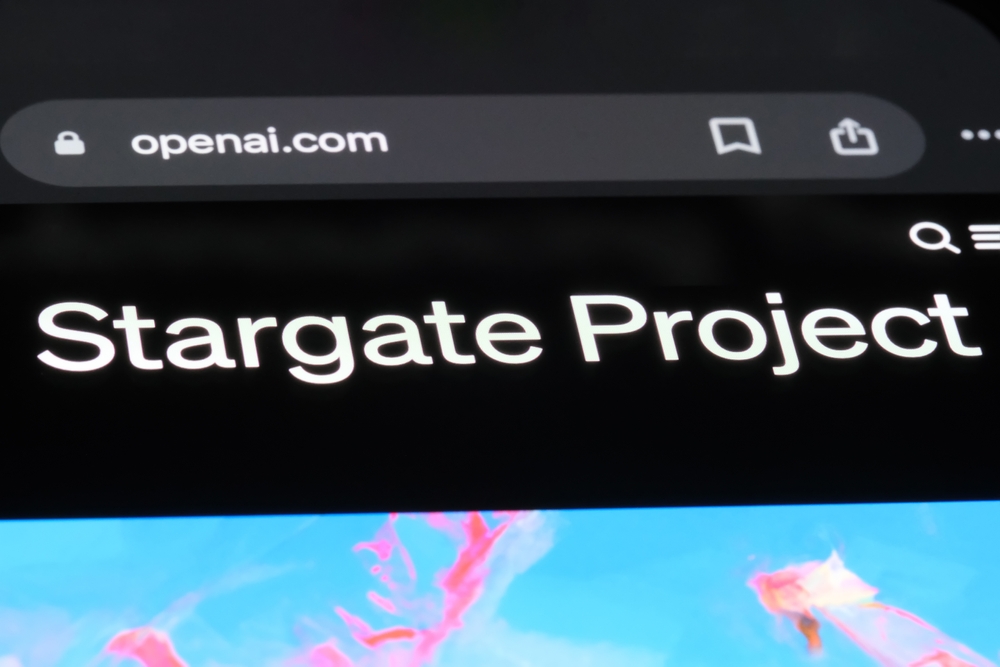Penelope the article rewriter said:
AI giants unite on ‘Stargate’ — and one Yale expert warns it may be the biggest antitrust red flag in a century
Others are reading now
When Donald Trump unveiled the $500 billion Stargate Project on his first full day back in office, he hailed it as a historic leap for American AI. But the venture — a collaboration between rivals like OpenAI, Oracle, Nvidia, Microsoft, Arm, and SoftBank — is raising alarms among legal scholars who say the structure resembles something U.S. antitrust law was designed to prevent.
A colossal alliance
At the January announcement, Trump cast Stargate as a triumph of national ambition. Larry Ellison spoke of transforming health care by sharing medical data across the country. Masayoshi Son proclaimed the start of “the golden age in America.” OpenAI’s Sam Altman called it “the most important project of this era,” crediting Trump for making it possible.
OpenAI later disclosed that Stargate was structured as a new, standalone company backed by SoftBank, OpenAI, Oracle, and Abu Dhabi’s MGX. Microsoft and Nvidia joined as major technology partners. Together, the consortium plans to deploy up to $500 billion in data centers and AI infrastructure — with sites spanning Texas, Ohio, New Mexico, Michigan, and beyond.
Antitrust questions
What makes Stargate extraordinary, critics say, isn’t its scale — but the fact that many of the world’s fiercest AI competitors are banding together. Yale Law School researcher Madhavi Singh argues the project contradicts more than a century of antitrust precedent.
In her forthcoming Berkeley Technology Law Journal analysis, Singh writes that the venture “deserves scrutiny” because it merges the power of companies that normally compete for dominance in cloud services, chips, and AI models. She told Fortune the Trump administration has shifted from enforcing the Clayton and Sherman Acts to promoting “national champions” in the U.S.–China tech rivalry.
Also read
Singh warns that by pooling capital, infrastructure, and purchasing power, Stargate could distort the very market it seeks to lead — raising prices, reducing choice, and discouraging innovation. Consolidating AI infrastructure is especially risky, she argues, because cloud services and chips are already concentrated. Nvidia controls up to 95% of GPU supply, while just three cloud providers — Amazon, Google, and Microsoft — control 70% of the market.
The risk of ‘cartelization’
Singh contends that Stargate undermines the competitive independence the Sherman Act is meant to preserve. Rather than independently developing chips, cloud services, and infrastructure, rival companies may have powerful incentives to coordinate their moves. “This is precisely what Stargate does,” she writes.
She notes that regulators previously blocked an Arm–Nvidia merger because even the potential for future competition mattered. In contrast, Stargate allows rivals to share technology and influence decisions while retaining their own corporate identities — a structure that may be harder to challenge legally but just as harmful in effect.
Though the companies still compete vigorously in models and applications, Singh says the real choke point is infrastructure. Whoever dominates chips and compute effectively controls the rest of the AI stack.
Minimal pushback — for now
Despite the scale of the collaboration, there has been little outcry from regulators or Congress. At a Senate hearing titled “Winning the AI Race,” neither Altman nor Sen. Ted Cruz faced questions about antitrust implications. Musk — once involved in early planning — publicly mocked the project’s financing but avoided the legal issues entirely.
Also read
Singh remains nearly alone in challenging Stargate’s legality. She argues the project could entrench monopoly power for a handful of tech giants under the banner of national security and industrial strategy. “If the Trump paradigm would make a few protected players far richer,” she concludes, “it’s a bad deal for America.”
Sources: Fortune, SSRN, Yale Law School, Berkeley Technology Law Journal.


